 Do you want some help around the house?
Do you want some help around the house?
How many cups are on your kitchen table? What about helmets or other sports equipment by the front door? Who washes the dishes in your home? What chores do your children carry out each week? How much time do you spend preparing food for yourself or others?
We all have many responsibilities in our homes: cooking, cleaning, laundry, shopping, repairs, and more. How many do you, as a parent, complete? Do you feel burdened by all of the chores? Would you like some help with these tasks?
What do you want?
What would you like your household with shared responsibility to look like? Can you picture it?
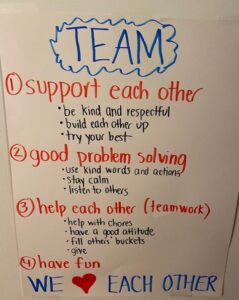 This image shows a sign that one family created to remember and bond over their collective vision. The family poster includes the ideas of:
This image shows a sign that one family created to remember and bond over their collective vision. The family poster includes the ideas of:
- Team
- Support each other
- Good problem solving
- Help each other (teamwork)
- Have fun
- Love each other
What could your family design as a map, vision, image, or list? What matters to you, as a parent? What do you want help with? What skills would your child like to develop? What are they naturally good at and interested in?
How could your child contribute?
Our children can do many things starting at a fairly young age. Check out these lists from Kathryn J. Kvols’ book, Redirecting Children’s Behavior, for some ideas.
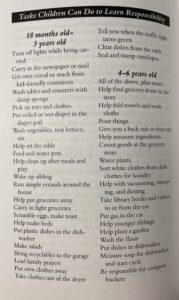
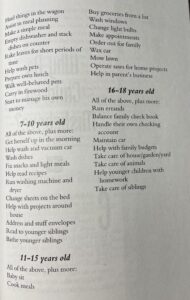 Specifically, what jobs do you need done AND your kids can help with?
Specifically, what jobs do you need done AND your kids can help with?
In our household, I created a list of chores “community chores” and “personal chores”. These are specific to our family and home. You could make a similar list for your household.
Community Chores:
- Bring out the trash & replace the liner
- Bring out and sort the recycling
- Empty the dishwasher
- Vacuum common areas
- Bring the trash can to the road and retrieve it
- Bring the compost out
- Feed the dog
- Putt groceries away
- Cook a meal
- Walk the dog
- Sweep the kitchen
- Bring in the mail
Personal chores change based on age/developmental stage:
Age 7 – Put clothes away
Age 8 – Wake yourself and get dressed without assistance
Age 9 – Brush Hair, make breakfast, organize backpack
Age 10 – Make own lunch, shower independently
Age 11 – Vacuum bedroom, keep bedroom tidy
Age 12 – Do you own laundry
Age 13 – Clean personal bathroom
In our household, we meet as a family a few times per year to make adjustments to the chores. Sometimes one child gets tired of a particular chore and wants to make changes. Overall, each child does 5-6 chores, some weekly, some daily, some every other day or so. They each complete the appropriate personal chores for their age as well.
How can you make it happen?
- Use visual aids, lists, and schedules
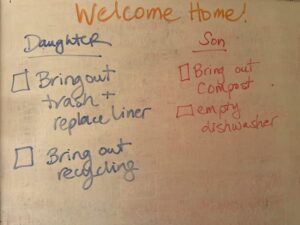
2. Discuss during a Family Meeting – here are some basic guidelines for family meetings.
3. Link expectations to desired activities, e.g. chores first, then screens, friends, outings, etc.
4. Cultivate positive family relationships regularly
5. Support one another by doing chores together or simultaneously
If you want to talk through your family responsibilities and how to integrate these ideas, reach out to schedule an introduction session with me!

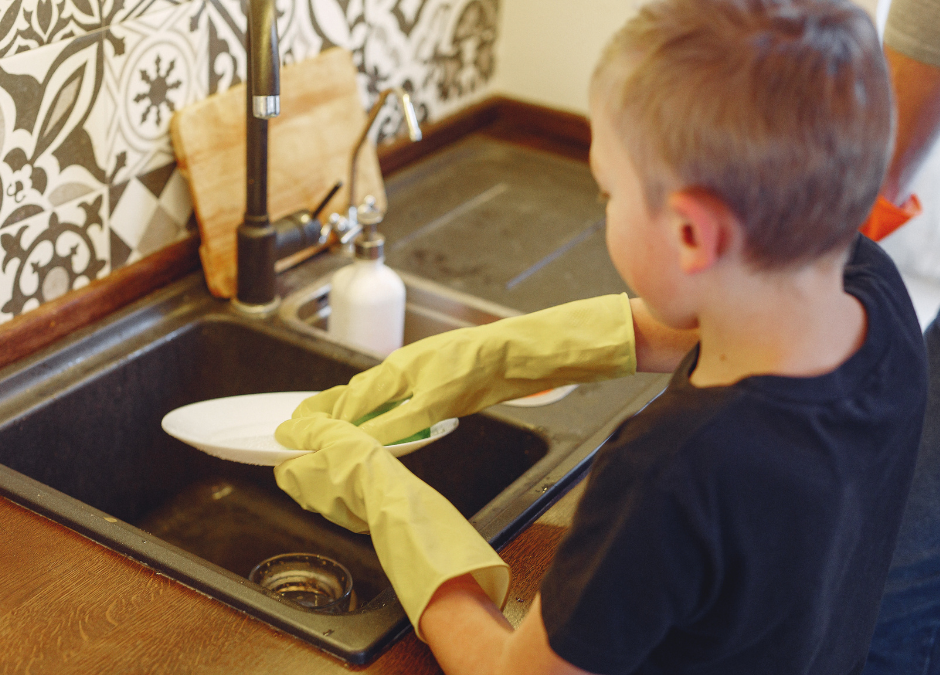
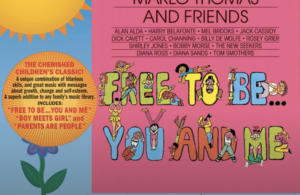
Recent Comments